Search Results
Showing results 1 to 20 of 100
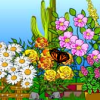
Animal Attraction
Source Institutions
Investigate a flower's power of marketing by making an imitation flower that successfully signals a bee (or other pollinator of your choice) to visit.
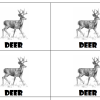
Deer Me: A Predator/Prey Simulation
Source Institutions
In this activity, learners will simulate the interactions between a predator population of gray wolves and a prey population of deer in a forest.
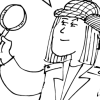
Disease Detective
Source Institutions
This activity (on pages 35-43) lets learners analyze a "herd of elk" to detect the spread of a bacterial disease called brucellosis.
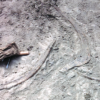
Kelsey: Clues of the Dig Site Map
Source Institutions
In this activity, learners explore dinosaur fossils and a dig site. Learners work in groups to analyze a dig site map and match bones to a skeletal drawing of Kelsey (a Triceratops).
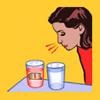
Shark Sense of Smell
Source Institutions
This is an activity about our sense of smell and how it compares to sharks' super noses. Learners will create varying solutions of water and perfume.
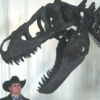
Create a Dinosaur Name
Source Institutions
In this activity, learners explore how dinosaurs are named and what their names mean. Learners listen to "The Littlest Dinosaurs" by Bernard Most.
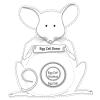
Let's Clone a Mouse, Mouse, Mouse...
Source Institutions
Somatic Cell Nuclear Transfer (SCNT) is a cloning method that involves transferring a nucleus from a somatic cell of the individual to be cloned to an enucleated egg.
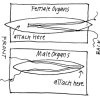
A Model Parasite
Source Institutions
In this detailed activity (on pages 9-18), learners investigate the body parts of a parasitic ascaris worm by making and dissecting clay models.
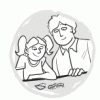
Take a Hike!: A Family Forest Walk
Source Institutions
In this family or group inquiry activity, learners use their senses to explore a local forest or woodland.
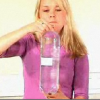
Cartesian Diver
Source Institutions
In this demonstration, learners observe the effects of density and pressure. A "diver" constructed out of a piece of straw and Blu-Tack will bob inside a bottle filled with water.

Whale Communication Hide and Seek
Source Institutions
In this activity, learners pretend that they are orcas and search for their "pods" using Morse code.
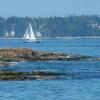
Why Doesn’t the Ocean Freeze?
Source Institutions
In this activity, learners explore how salt water freezes in comparison to fresh water.
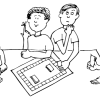
Life in a Nutshell
Source Institutions
In this multi-faceted game (on pages 25-35), learners recreate what happens to creatures in the Brazilian rain forest as they grow from egg to adult—especially those that use fallen, empty Brazil nut
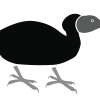
It's All About Birds
Source Institutions
In this activity, learners create their own bird species using arts and crafts materials. The bird call recordings are not online so the introduction activity can't be done, but everything else can.

Dogs and More Dogs
Source Institutions
In this activity, learners play an evolution card game to see how selective pressures can affect an organism's evolution.
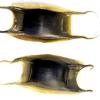
Mermaid's Purse
Source Institutions
In this activity (page 2 of pdf), learners craft a model of a skate egg case and come to understand that cartilaginous fish such as sharks and shakes employ reproductive strategies that differ from th
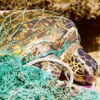
All Tangled Up
Source Institutions
In this activity on page 60, learners examine and simulate wildlife entanglement by experiencing what it might be like to be a marine animal trapped in debris.
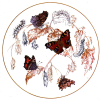
Butterfly Symmetry Painting
Source Institutions
This activity (on page 3 of the PDF) has learners create models of butterfly wings.
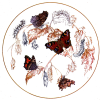
Build a Bug
Source Institutions
In this activity (on page 2 of the PDF), learners use art supplies to build models of insects, both real or imagined.
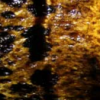
Amphibian Skin
Source Institutions
In this activity, learners explore the concept of permeability to better understand why amphibians are extremely sensitive to pollution.
